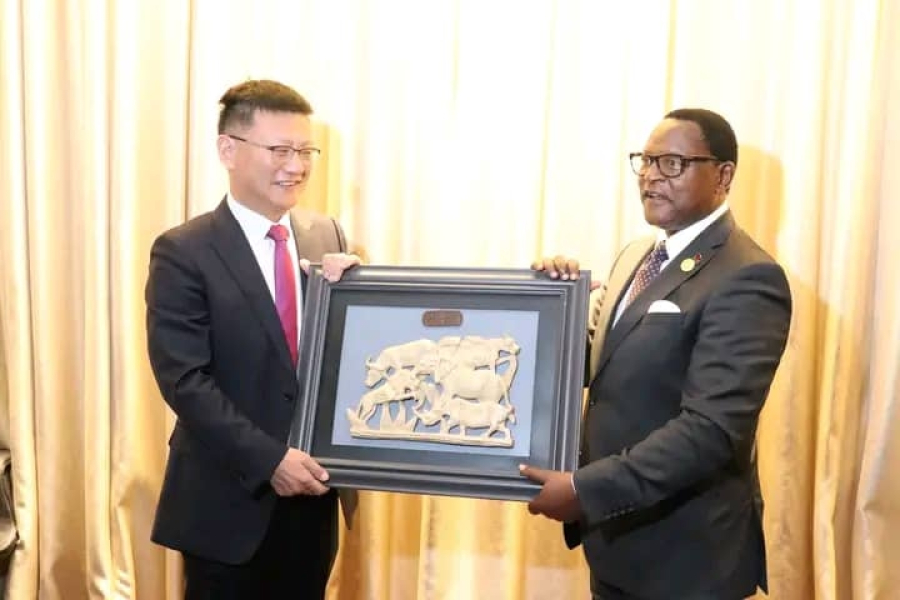Physical Address
60 Ekwema Cres, Layout 460281, Imo
Physical Address
60 Ekwema Cres, Layout 460281, Imo

Malawi has announced an ambitious plan to launch a Smart Village Initiative in collaboration with Huawei, a leading global telecom services provider, aimed at enhancing Internet access in rural and isolated communities.
This initiative, unveiled by President Lazarus McCarthy Chakwera during the Forum on China-Africa Cooperation Summit in Beijing, seeks to drive digital transformation across the country, enabling connectivity and access to essential digital services for millions of Malawians.
With a population exceeding 20 million, Malawi currently has approximately 5.86 million Internet users, translating to an Internet penetration rate of just 27.7% as of early 2024.
The Smart Village Initiative is a strategic response to this challenge, addressing the pressing need to bridge the digital divide that affects rural areas.
By establishing technical training centers, the initiative will equip young people with critical digital skills, including artificial intelligence, cybersecurity, and smart agriculture solutions.
These skills are essential for fostering innovation and economic growth in regions that have historically been underserved.

According to Statista, the number of households with Internet access in Malawi is projected to reach 640,000 in 2024.
This statistic underscores the urgency of initiatives like the Smart Village Initiative, which aim to significantly increase connectivity and digital literacy in rural communities.
The partnership with Huawei is not an isolated effort; it follows the company’s recent initiatives in neighboring countries.
In July 2024, Huawei announced plans to establish a smart village in Uganda, which includes the construction of a network tower station, a solar power station utilizing its digital power microgrid solution, and the deployment of smart classroom equipment.
These projects highlight Huawei’s commitment to enhancing digital infrastructure across Africa, and they serve as a model for Malawi’s upcoming initiative.
In addition to the Smart Village Initiative, Malawi is also advancing its Digital Malawi Program, launched in partnership with the World Bank.
This program aims to accelerate digital transformation in the country by promoting economic growth, innovation, job creation, and improved access to services and markets through information and communication technologies (ICTs).
The synergy between these initiatives is expected to create a robust digital ecosystem that empowers rural communities.
Read Next: Huawei Full Strategy to Compete with Apple in 2024
Huawei’s investment in Africa is substantial, with the company pledging $430 million over the next four years across 28 African nations.
This investment includes $200 million dedicated to cloud development, another $200 million to strengthen local partnerships, and $30 million earmarked for training the next generation of digital professionals.
This commitment reflects Huawei’s recognition of the potential for digital technologies to transform economies and improve lives across the continent.
Moreover, the company’s recent Memorandum of Understanding (MoU) with Kenya to promote digital transformation further illustrates its strategic focus on enhancing connectivity and digital skills in Africa.
As Chinese firms continue to show interest in the continent’s digital development, similar projects are emerging, such as Sierra Leone’s $50 million SMART Sierra Leone Project.
This initiative aims to expand Internet connectivity to over 400,000 previously unconnected citizens and establish national data centers to safeguard sovereign data.
As Malawi embarks on its Smart Village Initiative, the collaboration with Huawei represents a significant step towards improving Internet access and digital literacy in rural areas.
By equipping young people with the necessary skills and infrastructure, this initiative has the potential to transform communities, drive economic growth, and foster innovation.
As the digital landscape in Africa continues to evolve, partnerships like this will be crucial in ensuring that no one is left behind in the digital revolution.
Was this information useful? Drop a nice comment below. You can also check out other useful contents by following us on X/Twitter @siliconafritech, Instagram @Siliconafricatech, or Facebook @SiliconAfrica.